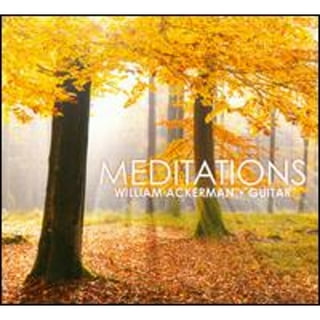The God Frequency – Common Questions From First-Time Listeners
Transform Your Reflection Experience With the Right Meditation Music Choices
The selection of songs can greatly influence the reflection experience. Numerous genres and styles serve various functions, influencing leisure and emphasis. Ambient sounds might develop tranquility, while nature sounds can stimulate a sense of connection. Understanding exactly how to pick the appropriate songs is important for improving mindfulness techniques. What details elements should one think about when curating a meditation playlist? The answers might change exactly how one strategies their introspective trip.
The Science Behind Songs and Reflection
Lots of people enjoy the relaxing results of songs during meditation, the underlying scientific research discloses a much deeper link in between noise and psychological well-being. Study shows that songs can substantially impact brain activity, promoting leisure and reducing stress and anxiety. When people listen to relaxing melodies, their bodies create reduced levels of cortisol, the tension hormone, which facilitates a state of peace necessary for meditation.Moreover, research studies reveal that details regularities and rhythms can boost focus and psychological policy. The mind reacts to sound waves, turning on neural pathways linked with relaxation and mindfulness. This interaction can lead to raised alpha and theta brainwave activity, states frequently linked to deeper meditation experiences.Additionally, songs can work as a support, aiding specialists in maintaining their emphasis and presence throughout meditation sessions. Comprehending the science behind songs and meditation highlights its possible to boost psychological quality and emotional security, making it an important device for practitioners.
Choosing the Right Category for Your Practice
Just how does one choose the most appropriate style of music for meditation practice? The selection of category greatly influences the total reflection experience. Each category evokes various emotional reactions, influencing leisure and focus. For example, ambient songs, identified by its soft, angelic sounds, commonly creates a tranquil atmosphere for deep meditation. Nature noises, such as streaming water or birdsong, can boost link to the environment and promote mindfulness.Conversely, timeless music, particularly pieces with sluggish tempos, can promote a relaxing yet structured reflection session. Making use of instrumental songs, lacking lyrics, lessens distractions, enabling professionals to immerse completely in their thoughts. Eventually, the appropriate genre depends on personal preferences and the particular objectives of the reflection technique. Trial and error with various styles can aid people find what reverberates best, fostering a more enriching reflection experience.
Developing a Personalized Reflection Playlist
Crafting a personalized reflection playlist can boost the reflection experience by lining up the selected songs with private preferences and goals. To develop an effective playlist, one ought to initially identify the desired mood or intention for every session, whether it's relaxation, emphasis, or psychological recovery. Selecting tracks that resonate with these intentions can magnify the influence of the meditation practice.Next, it is helpful to explore numerous genres, such as ambient, classic, or critical, while additionally thinking about the pace and rhythm of each piece. A balanced mix of acquainted and new sounds might maintain the experience fresh and interesting. Additionally, the size of the playlist must match the period of the reflection session, enabling a seamless circulation without interruptions. On a regular basis updating the playlist can also assist maintain inspiration and motivation, inevitably resulting in an extra meeting reflection trip.
The Function of Nature Seems in Enhancing Relaxation
Nature sounds play a considerable function in boosting relaxation throughout reflection, as they can evoke a feeling of calmness and connection to the environment. The mild rustling of leaves, the relaxing noise of flowing water, or the distant phone calls of birds can deliver the mind far from daily stress factors, fostering a peaceful mental space. Research indicates that these organic audios activate a physiological response, decreasing heart prices and decreasing stress and anxiety levels.Incorporating nature seems right into meditation methods can aid anchor the meditator's focus, helping with a deeper state of mindfulness. As these noises are soothing and often familiar, they create a background that motivates the release of tension. Whether through taped tracks or the native environment, incorporating these acoustic elements can significantly boost the overall reflection experience. Ultimately, nature sounds function as a powerful tool for those looking for to attain a greater sense of peace and leisure during their practice.

Live Songs and Guided Procedure: A Special Technique
Including live songs into reflection techniques introduces a transformative and dynamic component that boosts the experience past fixed nature sounds. Live artists can produce a distinct atmosphere, allowing individuals to link with the existing minute through spontaneous tunes and rhythms. This interaction promotes a much deeper psychological response, aiding individuals immerse themselves totally in the meditation process.Guided sessions that integrate real-time songs usually include a facilitator who blends verbal cues with musical accompaniment, boosting emphasis and relaxation. The real-time element enables a liquid experience, adapting to the group's power and requires in real-time. This adaptability can result in heightened states of recognition and much deeper states of relaxation.Moreover, real-time songs can cultivate a sense of area amongst participants, as shared experiences usually intensify the reflective trip. Ultimately, this special method improves reflection, transforming it right into a multi-sensory and engaging experience.
Tips for Staying Mindful While Listening to Songs
How can one genuinely improve their mindfulness while listening to songs? To grow a conscious experience, people should initially choose songs that resonates with their meditation objectives, going with important or calming items. Producing a specialized area devoid of distractions is vital; this enables the listener to immerse themselves totally in the acoustic experience. Concentrating on the sensations evoked by the songs-- such as tune, rhythm, and harmony-- can strengthen mindfulness.Practicing deep breathing while listening motivates people to get in touch with the music on a profound level. It is additionally valuable to maintain an open understanding, recognizing thoughts and feelings that develop without judgment. By consciously returning attention to the songs whenever the mind wanders, one can strengthen the practice of mindfulness. Inevitably, integrating these ideas can transform the act of listening into an abundant, introspective experience that improves general wellness.
Often Asked Concerns
How Does Meditation Music Influence My Brain Waves?

Can I Make Use Of Popular Songs for Meditation?
Using pop music for reflection can differ in performance. While some people might locate familiar melodies relaxing, others could be sidetracked by lyrics, possibly interrupting the meditative state sought during practice. Individual choice plays an important function.

What Is the Suitable Volume for Meditation Music?
The perfect quantity for meditation songs is usually soft, enabling a mild history presence. This volume promotes leisure without frustrating the mind, promoting deeper focus and a tranquil atmosphere for reflection techniques.
The length of time Should I Pay Attention to Songs Throughout Reflection?
The duration for paying attention to music throughout reflection differs. Generally, professionals suggest 10 to 30 minutes, permitting sufficient time to unwind and focus (What Is The God Frequency). Ultimately, private choices and reflection goals influence the optimal paying attention length
Is It Okay to Sing Along While Meditating?
The question of vocal singing along during reflection is subjective. Some people discover it improves their technique, while others think it interferes with focus. Eventually, personal choice and the reflection design dictate whether vocal singing is ideal. Numerous people take pleasure in the relaxing effects of music during reflection, the underlying science discloses a deeper link between sound and mental well-being. Ambient music, defined by its soft, spiritual sounds, typically produces a serene ambience conducive to deep meditation. Nature sounds, such as moving water or birdsong, can improve connection to the environment and advertise mindfulness.Conversely, classic music, specifically items with sluggish paces, can help with a calming yet structured meditation session. Crafting an individualized reflection playlist read more can enhance the reflection experience by straightening the selected songs with specific preferences and objectives. Integrating live songs right into reflection techniques introduces a transformative and dynamic element that boosts the experience beyond static nature noises.